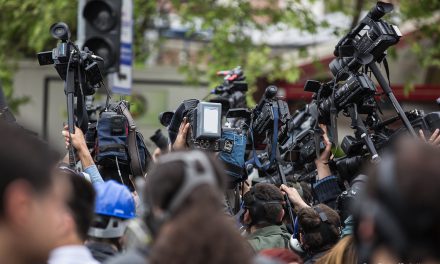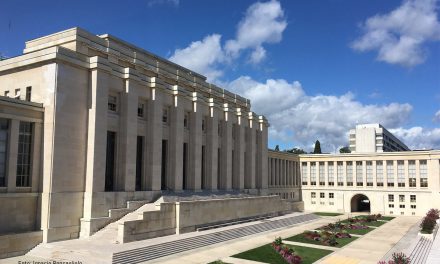Nikki Haley addresses the Human Rights Council, challenging Venezuela’s membership
The US Permanent Representative to the UN called on Venezuela to “voluntarily step down from his seat on the Human Rights Council” and denounced the “chronic anti-Israeli bias” of the UN body.

Ambassador Nikki Haley, United State’s Permanent Representative to the UN addressed the Human Rights Council on the first day of it 35th session. After reiterating the USA’s commitment to the promotion and protection of human rights, Ms Haley called on Venezuela to “voluntarily step down from his seat on the Human Rights Council until it can get its own house in order.”
Venezuela is currently facing a political, economic and humanitarian crisis that has raised international concerns to which the Maduro’s government has not been responsive; humanitarian access of international relief agencies has been restricted despite serious shortages of food and medical supplies in the country.
The US Ambassador stated: “Being a member of this Council is a privilege, and no country who is a human rights violator should be allowed a seat at the table.” She further expressed the need for a resolution on Venezuela to be considered, finding it hard to believe that no such initiative has been brought to the HRC yet, while five resolutions were adopted on Israel at the last session.
She denounced the “chronic anti-Israeli bias” of the UN body, considering it was undermining its credibility. The HRC has often been criticised by Israel’s allies for its agenda item 7 focusing on the human rights situation in Palestine and other occupied Arab territories.
Ms Haley implied that the Council needed strengthening so it would be “more effective, more accountable, and more responsive”, and stressed that “there was no room for culture relativism” in relation to the condemning violence and discrimination against women.
Ambassador @NikkiHaley addresses the @UN #HumanRights Council. #HRC35. @UN_HRC Text of statement: https://t.co/sdeGhH7uzK pic.twitter.com/jssIWLPbPf
— U.S. Mission Geneva (@usmissiongeneva) 6 de junio de 2017
Venezuela exercised its right of reply, claiming that: “the representative of the most interventionist power in history once more undermined the homeland of Simon Bolivar which is free and does not seek domination.” The representative reiterated Venezuela’s support of the Palestinian cause and described the United States’ support of Israel as being the common denominator of human rights abuses occurring in the region.
He further stated that the USA had no more authority to set themselves up as a “universal judge of human rights” and suggested that they should renounce their post at the Council as well as apologise for the atrocities they committed throughout history.
The intervention of the US Ambassador and the reply of Venezuela clearly reflect the tensions in international relations within the Human Rights Council. Such frictions are increasingly visible and divisive of the UN body and need to be addressed in order for the Council to effectively fulfil its duty: safeguarding the human rights of all, worldwide.




